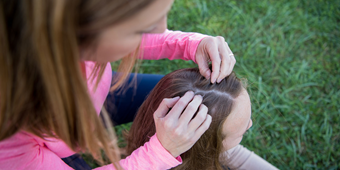Is Your Teen Getting Enough Sleep?

Find Your Perfect Match
Answer a few questions and we'll provide you with a list of primary care providers that best fit your needs.
If you live with a teen, you’ve probably noticed you’re on different sleep schedules. If your teen is like most.
While teens need eight to 10 hours of sleep a night, studies show that only 15 percent of them get eight hours of sleep on school nights. As a result, they may underperform in the classroom. And more concerning: Drivers age 25 and under account for half of asleep-at-the-wheel accidents.
Your teenager’s tendency to stay up late and sleep late the next morning is part of a natural sleep rhythm that’s often at odds with school and work demands.
When children become teenagers, they need more sleep and they also experience a change in their circadian rhythm, which determines the time of day they want to go to sleep.
Everyone’s body has a natural circadian rhythm in which the hormone melatonin is released, creating the natural feeling of sleepiness.

Kids may say they don’t feel as if they can go to bed before midnight or one in the morning, and that’s probably true. They haven’t started to wind down yet because of the timing of that chemical release. By the same token, the chemical release makes them more tired in the morning. They’re not being lazy. Their bodies really want to sleep more because that’s just the way their body is wired.
Your teenager’s tendency to stay up late and sleep late the next morning is part of a natural sleep rhythm that’s often at odds with school and work demands.
The allure of electronics and social media adds to teens’ sleep deprivation.
Hazards of Teen Sleep Deprivation
Safety- and health-related problems that can result from sleep deprivation include:
- Irritability or moodiness
- Unsafe driving
- Declining grades and difficulty concentrating
- Increased risk of obesity, diabetes and heart disease
- Listening issues
- Work-related injuries
- Poor sports performance
- Skin problems, including acne
- Trouble problem solving
How You Can Help Your Teen
Here are some guidelines on helping your teen get the rest he needs for optimal health and performance:
- Understand it’s biological. Sleep is significantly linked to a change in a teen’s biological clock. Use this understanding to help your teen form strategies to get the sleep she needs.
- Set a consistent sleep schedule. Teens have a tendency to sleep very little during the week and try to catch up on the weekend. But sleep deprivation can’t be reversed. Try to keep sleep schedules as consistent as possible on weekdays and weekends. A regular nightly routine is a natural way to tell your body it’s time to turn in.
- Power down early. Encourage your teen to turn off devices with a lighted screen an hour before bedtime. And to use this time to get a warm shower or prepare for the next school day.
Other ways to promote good sleep include limiting caffeine intake, especially in late afternoon or evening. Keep electronics out of the bedroom and make sure the room is cool, dark and quiet. Learn more tips for good sleep.
Find Your Perfect Match
Answer a few questions and we'll provide you with a list of primary care providers that best fit your needs.
Source: National Sleep Foundation




